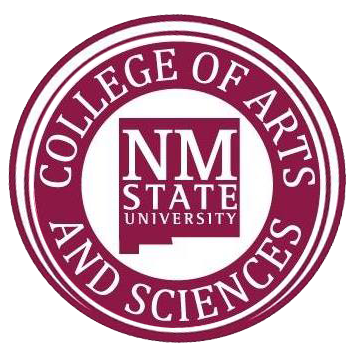Scholarships and fellowships offered by the College of Arts & Sciences and its departments/programs are merit-based awards established by donors that are given based on the strength of a student’s Scholar Dollar$ application, meeting the scholarship requirements, and availability of funds. Often, students will be competing with dozens, and in some cases, hundreds of their peers, for a limited amount of scholarship funds. Scholarship recipients are chosen by faculty selection committees.
Each department/program in the College of Arts & Sciences has its own awarding culture and schedule, and set of scholarships that they administer. Please check with the department of your major for details on their scholarships.
During the 2017 – 2018 aid year, the average scholarship received by College of Arts & Sciences students was for $900. Generally, this amount can only fund a portion of a student’s Cost of Attendance.
While some awards may require the recipient to have financial need, scholarships offered by the Arts & Sciences College and its departments/programs are not awarded based strictly on a student’s financial resources.
What can students do to increase their ability to compete for scholarships?
Complete a new Scholar Dollar$ application annually
Your objective in completing a Scholar Dollar$ application is to assert that you are deserving of scholarship funds because you take your studies seriously and want to further your education that will lead to a career. Your application is a type of formal communication in which you want to have the best presentation of yourself.
Answer questions in complete sentences.
It’s not Twitter – you have more than 140 characters.
Use correct grammar, punctuation and spelling.
Scholar Dollar$ doesn’t have autocorrect
Compose your answers in Word and then paste them in Scholar Dollar$
Answer essay questions thoroughly. Even if you’re limited by words or characters, try to give each essay answer a beginning, a middle and a closing.
It’s okay to break up serious responses with personal stories or experiences.
During the open period you can work on your application as many times as you want.
Other things you can do to stand out from the crowd
Maintain a GPA of at least 3.0
Participate and be active in class
Make a positive impression on your professors through quality work
See your professors during office hours
Take advantage of research opportunities
Join clubs and organizations
Get involved in campus and community activities
Pay attention to department announcements for scholarships
Submit all required documents
Asking for a Letter of Recommendation
The College of Arts & Sciences has two scholarships that require a Letter of Recommendation. Both ask for a faculty recommendation, while one can include a recommendation from an employer or community member.
· Arts & Sciences General Scholarship
Requires a faculty letter of recommendation.
· John E., Grace E. and John L. Gill Memorial Scholarship (for pre-health majors)
Requires two letters of recommendation, one of which must be from faculty. The other letter can be from another teacher, employers, or respected community members.
In a letter of recommendation, your professor, supervisor, coach or activity coordinator explains how they know you and in what capacity. Through this relationship, they demonstrate they can speak to your performance and how you stood out to them. They will also likely address how you interact with others and whether you show signs of being a leader. A faculty member might also have knowledge of your personal circumstances and what obstacles and challenges you have overcome to attend the university. A good letter of recommendation will also address the faculty member’s expectations for you going forward in the remainder of your education, and possibly into your career. Their evaluation gives reviewers a picture of whether you are a good investment of scholarship dollars.
Here are some things to consider as you decide which faculty member will be able to give you the best recommendation:
A faculty member from the department of your major will be able to speak about your performance in your main area of study.
You will probably have one or two professors in your major who have had you in several classes.
They will have had time to get to know you and may have learned about your personal life and the obstacles you’ve had to overcome to attend the university.
Faculty members who have had you in class in the last year can give more recent assessments of you.
For example, say you had a professor at the community college who can give you a glowing recommendation, but now you’re on main campus. Your previous college professor’s recommendation will now appear somewhat dated.
Seeking Advice from the Scholarship Advisor
An appointment is not required to seek advice from the Scholarship Advisor, but during certain busy times of the semester it is recommended.
When you come into the Scholarship Office, I will review the following with you:
Your Financial Aid record including:
Your current aid package
Disbursement dates
Your Scholar Dollar$ application
Scholarships you are eligible for in the college
Scholarships you are eligible for in the department of your major(s)
Advise you on the awarding culture of the department of your major(s)
Links to Scholarship Resources:
Financial Aid: http://fa.nmsu.edu/
Scholar Dollar$: Scholarships.nmsu.edu
FAFSA: https://studentaid.ed.gov/sa/
Outside Scholarships: http://www.scholarships4students.com/
Private Scholarships: http://fa.nmsu.edu/scholarships/private-scholarship-opportunities/
Outside Scholarships for Veterans: http://www.scholarships4students.com/
Air Force ROTC Scholarships: https://airforcerotc.nmsu.edu/scholarships/
